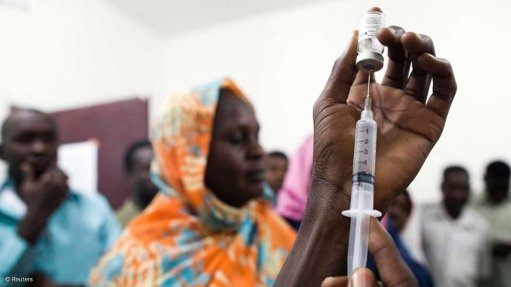
Photo by: Reuters
Violence, lack of access to basic healthcare, poor governance and cultural beliefs all hampered the fight against measles in the Democratic Republic of Congo (DRC), according to the World Health Organisation (WHO).
The disease is currently spreading faster than Ebola and has a higher death toll, said the global health agency, even though an effective vaccine is available.
Measles has had a devastating effect in all 26 provinces of the DRC in a year, causing over 6 000 deaths from 311 000 recorded infections.
The WHO has put out numerous calls for additional funding to help fight the outbreak, which is further exacerbated by low vaccination coverage, malnutrition, inferior public health systems and outbreaks of other epidemic-prone diseases.
So far, $27.6-million has been spent to fight the illness, but another $40-million is needed for a six-month campaign to extend vaccinations to children between 6 and 14-years-old, said the organisation.
The additional funding would also improve the outbreak response beyond vaccinations.
In its latest report, the WHO said the effect of civil unrest and war worked hand-in-glove with the spread of diseases. In 2019, the organisation recored 978 attacks on health-care providers in 11 countries, with 193 deaths reported.
“Millions of people were displaced by violence and thus are without any healthcare at all. The lesson is that disease and bullets are not separate problems but closely intertwined."
The virus is spread when an infected person coughs or sneezes. Measles can lead to serious complications and death, especially among children.
Immunisation of 93% to 95% of the population with the measles, mumps and rubella (MMR) vaccine is the most effective way of halting the spread of the disease. The first MMR dose is recommended at 12 months through to 15 months, and the second dose at four to six-years.
The vaccine has proven to be safe and highly effective, but when pools of people neglect immunisation or fail to stay up-to-date, they are vulnerable.